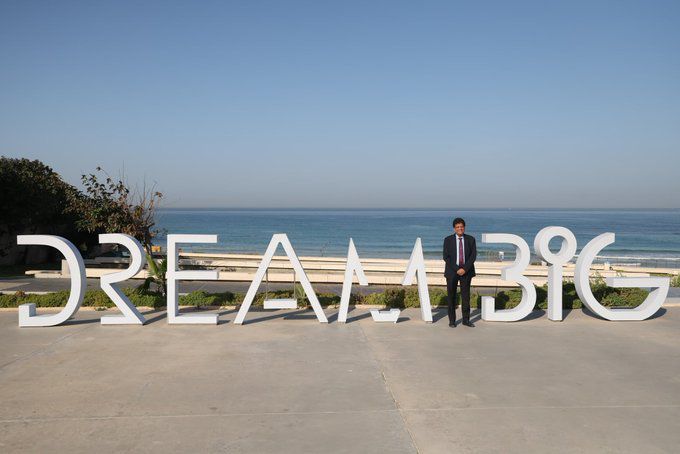India’s Commerce Minister Piyush Goyal’s visit to Israel is not a ceremonial handshake across continents; it is a declaration of intent that India and Israel are ready to elevate their relationship from transactional cooperation to strategic partnership built on trust, technology, and geopolitical clarity.

When Goyal landed in Tel Aviv with a 60-member business delegation representing India’s industrial, technological, and entrepreneurial backbone, it sent a message far beyond the boardrooms of Jerusalem and New Delhi: India is stepping into the future with partners who can help it strengthen its economic resilience and national security architecture in a world defined by rapidly shifting alliances, technological warfare, and ideological confrontations.
India and Israel are, in many ways, natural partners. Both are nations shaped by civilisational heritage but pressured by modern adversities. Both are democracies surrounded by complexities. Both face enemies who operate through terror networks, propaganda arcades, and covert influence campaigns. Both survive by innovating, not by relying on the goodwill of others. And both understand that in the long arc of geopolitics, technological strength is as important as military readiness.
This is the backdrop against which Piyush Goyal’s visit must be viewed. It is not about ceremonial photographs or diplomatic hospitality. It is about aligning two innovation-driven nations that are prepared to build for the next century rather than cling to the complacencies of the last.
For decades, India-Israel ties were understated but substantive: intelligence sharing, emergency defence supplies during critical conflicts, agricultural transformation through precision farming, and cooperation in electronics and irrigation technologies. But now, the relationship is entering a new phase – one defined by co-creation instead of mere collaboration, co-production instead of simple import-export dynamics, and strategic alignment instead of confined convenience.
With negotiations for a Free Trade Agreement gathering momentum, Goyal’s push is clear: India will not settle for partial gains or symbolic treaties. The FTA must unlock new economic territory – expanded market access, seamless investment pathways, technology sharing frameworks, harmonised standards, and reduced barriers. Goyal’s stance is simple: India is ready for a deeper partnership, but it must be a fair one. This principle of reciprocity reflects India’s maturing economic diplomacy – self-confident, assertive, and future-focused.
Israel understands the value India brings. Not just as a market of 1.4 billion people, but as a country with unmatched scale, talent, and the hunger to become a global manufacturing and innovation hub. When Goyal invites Israeli companies to co-develop and co-produce in India, he isn’t pitching a business opportunity; he is offering a strategic corridor into the engine of the world’s fastest-growing large economy.
For Israel, the partnership provides something equally valuable: stability, scale, and a democratic ally with shared strategic concerns. In a world where the emerging threats are hybrid – part cyber, part ideological, part military – India and Israel recognise the need to build a technological firewall around their societies. From drone warfare to cybersecurity, from AI-enabled surveillance to agricultural water-efficiency systems, the cooperation is no longer limited to specific sectors; it is spreading into the entire architecture of national resilience.
But this relationship is not without challenges. India must manage the optics of strengthening ties with Israel while maintaining its historically nuanced approach to Palestine and its relationships across the Middle East. Domestically, small businesses may worry about the impact of an FTA with a country known for deep-tech dominance. There is also the long-term risk of over-reliance on foreign defence technology if co-production models do not sufficiently develop local capability.
Yet, India’s leadership is aware of these risks. Goyal is approaching the Israel partnership with the clarity that strategic autonomy is non-negotiable. The goal is not dependence – it is interdependence. Not buying finished technology – but building the next generation of technology with trusted partners. Not aligning blindly – but choosing alliances that strengthen India’s sovereignty and capabilities.
What makes this moment even more significant is the global context. The world is entering an era where democracies with technological power will shape the future. Authoritarian regimes, expansionist powers, proxy networks, and radical ideologies are using every tool – from information warfare to economic manipulation – to disrupt stability. In such a scenario, India and Israel are not simply economic partners; they are co-architects of a secure democratic future.
Goyal’s visit symbolises India’s readiness to lead rather than just participate. To shape rather than follow. To build alliances based on values, capability, and strategic alignment, not on outdated geopolitics or historical hesitation. This relationship has the potential to redefine India’s role in global technology supply chains, defence innovation systems, and strategic coalitions.
If the FTA materialises with the depth and ambition being discussed, if Israeli investment flows into India’s advanced manufacturing and tech ecosystems, if co-development in high-end sectors becomes reality, then this partnership will look less like diplomacy and more like a long-term strategic compact.
India is not approaching Israel as a buyer. It is approaching Israel as a partner. Israel is not approaching India as a market. It is approaching India as an indispensable ally. The world is watching because partnerships like this don’t just shift bilateral equations – they shift power equations.
Piyush Goyal’s Israel visit may very well be remembered as the moment India chose to expand its strategic horizon, anchor its technological future, and align with a country that understands its challenges, respects its ambitions, and is willing to build the next chapter together. In the evolving global order, this is not just smart diplomacy. It is necessary diplomacy. It is India stepping onto the world stage not as an observer, but as a shaper of the future.































